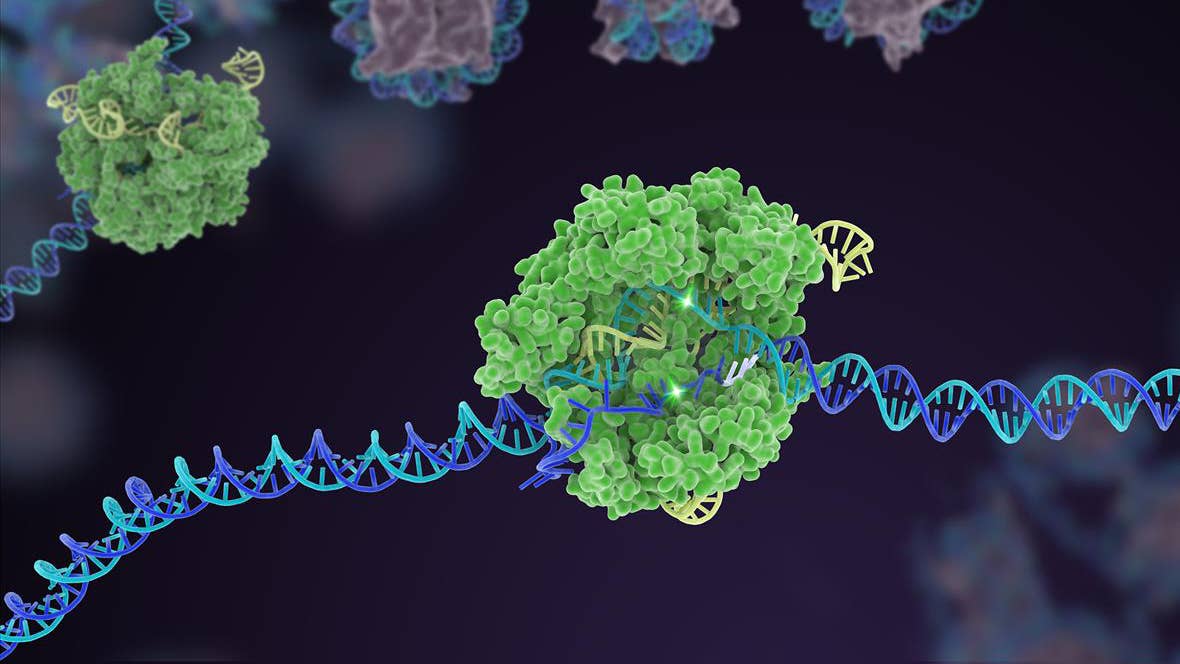Is Technology Unnatural—Or Is It ‘What Makes Us Human’?

Share
Beavers dam rivers; birds build nests; chimpanzees use sticks to fish for ants or termites. Nature at its best. But when humans build dams or use tools to feed ourselves, our creations, though admittedly more complex, are labeled unnatural.
The delineation is deeply engrained. Whole fields of thought, research, and engineering bear this out in their names: synthetic biology, for example, or artificial intelligence. There’s a sense that human inventions are separate from nature. But what is natural, and what is unnatural—is this even a useful distinction?
It seems a simple question at first, one whose answer is just as simple. But it isn’t simple at all. There’s a great Bertrand Russell line that goes: “Everything is vague to a degree you do not realize till you have tried to make it precise.”
A dictionary definition of unnatural describes it as “different from how things usually are in the physical world or in nature.” This requires we define “usually,” and nothing could be more vague. Every human has a different notion of “usual” depending on their local circumstances and life experience. We can substitute “usually” with the word “average,” but we’re then stuck with a figment of statistics. (Mash the world’s diversity into “average” and you’re left without a single individual case.)
And even if we take the word “usual” seriously: Stars, planets, life—things made of matter—these are far from usual. Almost the entire natural universe is empty space. But who would characterize Earth or the Sun or a tree as unnatural?
If we take a broader view, then, and say anything within our universe is natural—then anything unnatural is by definition an impossibility. It might exist, but we’ll never encounter it because it lies firmly outside our realm of experience.
Perhaps human technology is as natural as tools used throughout the rest of the animal kingdom which are in turn as natural as planets, stars, and galaxies.
Technology viewed from this perspective is a natural consequence of physical laws. And the sense that something is unnatural is really more of a moral matter. It is an invention or technology that offends the sensibilities of some or most or all.
Genetic engineering is a good contemporary example.
Currently, we’re mostly engineering plants—think genetically modified foods—but powerful new genetic engineering technologies are rapidly simplifying the process of snipping out certain genes and adding in others. By planting a jellyfish gene into the genome, we can make a plant, rabbit, or kitten glow green. (Weird, right?)
In the not too distant future, we may be regularly engineering everything from bacterial to human genomes—even creating entirely new forms of life. We have a strong, impulsive distaste for the idea of genetic engineering. And calling it unnatural is a common response to the fact of GMOs and other genetic fiddling.
But genetic experimentation is as old as life. It’s the very engine of evolution.
Be Part of the Future
Sign up to receive top stories about groundbreaking technologies and visionary thinkers from SingularityHub.


From the primordial slime to the teeming oceans of the Cambrian to the living world as we know it today, genetic mutations and sexual recombination brought a mind-numbing variety of creatures—monsters of the deep, fragile flowering plants, extremophiles, great apes. And humans have consciously engineered genetics for a long time, guiding living populations by observation and selective breeding.
Admittedly, it’s a spectrum. But not from natural to unnatural. On the one end you have chance evolution and on the other end you have directed evolution. Sexual selection is a kind of directed evolution, in that individuals instinctively choose partners for their genes as expressed in physical traits. But more fully directed evolution has only been made possible by humans. In geologic time, it is very new.
Being new, we are fearful of the power in our hands, and a backlash against technology makes sense, particularly as we see Earth noticeably changing due to our presence. Viewed from space, our planet literally glows at night.
But the world beyond humans makes no such moral judgments. Ancient volcanism dramatically reworked Earth’s atmosphere, an asteroid wiped out the dinosaurs, and given the chance, animals will overrun their environment and its resources.
Even “natural” genetic selection isn’t an ethical, speedy, or even all that practical of an experimentalist. Changes take thousands and millions of years. Animals are left with useless, vestigial relics from prior generations. Genetic diseases and conditions cause great suffering and untimely death.
Human-directed genetic engineering, on the other hand, isn’t random at all. And that is a thought that’s at once incredibly frightening and hopeful. There will be mistakes along the way, even malevolent creations—no question—but mostly genetic research shares a common goal: to improve humanity’s lot in life.
This might mean curing a genetic disease or reducing failed crops. It might also bring seemingly frivolous uses, like those glowing bunnies, or dystopian dreams, like designer babies and future generations descending into nightmare uniformity.
Will the net result of our experimentation with genetic engineering and other advanced technologies be good or bad? We don't know. And the diversity of opinion is and will continue to be as dizzying as the Cambrian explosion.
But as we debate the future, more clearly defining our terms is a battle worth waging because how we argue positions and question assumptions determines, for better or worse, which boundaries we decide to push beyond, and which we delay or refuse to cross.
Jason is editorial director at SingularityHub. He researched and wrote about finance and economics before moving on to science and technology. He's curious about pretty much everything, but especially loves learning about and sharing big ideas and advances in artificial intelligence, computing, robotics, biotech, neuroscience, and space.
Related Articles

Researchers Break Open AI’s Black Box—and Use What They Find Inside to Control It

What the Rise of AI Scientists May Mean for Human Research

Souped-Up CRISPR Gene Editor Replicates and Spreads Like a Virus
What we’re reading
